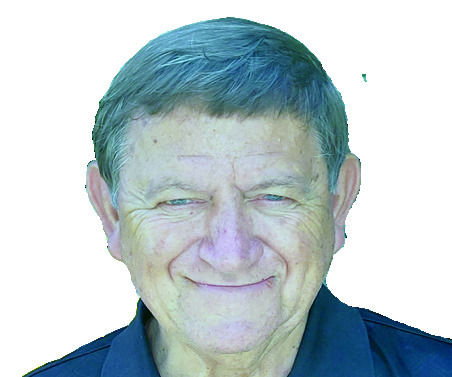Sheila Harris: A conundrum

PUBLISHER’S NOTE: Do you have an opinion about this opinion? Share it with us and the community in a letter to the editor! Letters may be submitted using this link: https://forms.gle/RmdQfYe86PtkTKp8A.
My brother’s daughter Britney (“Brit”) left us on July 27, 2023, not by choice, but because remaining was no longer an option.
Diagnosed with an aggressive form of central nervous system cancer when she was 30 years old, Brit fought valiantly for the sake of “her boys,” her husband and then-9-year-old son.
However, in May 2023, she opted to lay down her sword after doctors discovered the final insult, an inoperable brain tumor. She lived one month past her 36th birthday.
Our hearts are broken. Brit was the best of us. She exuded grace learned in crucibles that nobody enters willingly. Yet, during her journey, she showed us how the path should be traveled, forging the way for those of us sure to follow.
Her story is begging to be told, but it’s taken me over a year to gather my strength. It will get easier with time, I thought, but I was wrong. But, in some strange and comforting way, although I’m tapping into deep emotion, it’s as though Brit is here with me as I attempt to share her story.
My original plan was just to write about her, because she’s worth writing about. Her striking beauty and sharp wit were outmatched only by her compassion. She had the uncanny ability to listen deeply to others, and to offer tidbits of wisdom when appropriate.
“The voice of reason,” her mother says about her, and she was. She remained calm when her world was falling apart and everyone around her was struggling, confident that no matter the outcome of her journey, God had her under his wing.
I learned quickly that Brit’s story reaches far beyond her. There’s an entire community involved, because the dots connecting Brit’s cancer to the possibility of an environmental trigger are glaring.
A native of Purdy, after graduating from high school, Brit moved to Springfield, where she found a job that she loved and met her future husband.
In 2008, after their son was born, Brit and her husband moved into a comfortable rental home in northwest Springfield. Their plan was to save money until they could buy their own house. But, time got away. They were still in the same neighborhood when Brit was diagnosed with cancer in 2017.
Unknown to them at the time, their home was situated between two notorious toxic waste sites: the former Litton Systems facility, less than three miles to the west; and the former Kerr-McGee facility, three blocks to the east.
Litton dumped the solvent trichloroethylene (TCE), now known to be carcinogenic, into unlined ponds on their property, from 1962 until the early 1980s.
After pressure-treating railroad ties, Kerr-McGee (and their predecessor and successor) dumped spent creosote into unlined lagoons on their property for 70-plus years, beginning in 1907.
Maybe the companies didn’t know any better; I’ll give them the benefit of the doubt.
Either way, the contaminants didn’t stay where they were put. They settled through soil, into groundwater and aquifers and traveled, later showing up in springs, wells, soil and vapors. Investigations and remediation efforts are ongoing.
Thinking I might be ready to tackle writing about Brit, I drove down her old street in Springfield a few weeks ago, just looking, not expecting to find any dot-connectors. But I did. I saw a neighbor lady working in her flowers and pulled over to ask her if she had time to talk. She did, she said.
The flower-gardener, I learned, had been diagnosed with a terminal liver disorder eighteen months before: the same time that a neighborhood child was diagnosed with leukemia.
Later, I recalled that another young lady I was acquainted with had lived in Springfield before being diagnosed with a rare autoimmune disorder. I texted her to find out where, in Springfield, she had lived. I was stunned to discover that she had lived only two blocks away from my niece.
Coincidences? Maybe. But too many for comfort.
I reached out to state agencies, and said, hey, I think we might have a problem here. A cancer study of the area, initiated by the Missouri Department of Health and Senior Services, is now underway.
We may never know why Brit developed cancer. Connecting cancers and other health anomalies to environmental factors is tricky: in part, because they are dependent on an individual’s immune system.
But, like my niece, the neighbors I spoke with were unaware of their homes’ proximity to the former Litton and Kerr-McGee facilities. There are no laws requiring such disclosures by landlords and home-sellers.
Therein, might lie the crux of Brit’s story.
Sheila Harris is a long-time Barry County resident and a sales executive and investigative reporter for the Cassville Democrat with a particular interest in environmental topics. She may be reached at [email protected].





